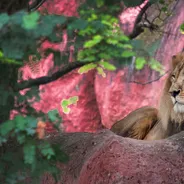The Niassa reserve in Mozambique, one of Africa's largest wildlife preserves, has gone a full year without any of its elephants being killed by poachers.
Indeed, the last recorded killing of an elephant by a poacher was on May 17, 2018.
The preserve, which just a year ago, had less than 2,000 elephants, now holds approximately 4,000 elephants.
This is the heartwarming moment a baby elephant rushes to save a man swimming in a river:In recent times, the Mozambique government has introduced measures geared at increasing its elephant population and allowing it to flourish.
For instance, a dedicated police force was set up to protect the mammals, and better patrolling has been put in place, according to the New York-based Wildlife Conservation Society, which manages the reserve along with Mozambique's government
"It is a remarkable achievement," Wildlife Conservation Society country director James Bampton told The Associated Press.

"The new rapid intervention police force is an elite unit that is better-armed than the reserve's normal rangers," Bampton said, before adding that no "bad incidents" had been reported in Niassa.
This new strategy allows the force to arrest any suspected poachers in a way that is quicker and more efficient.
According to Bampton, "just being caught with a firearm is considered intent to illegal hunting," and is punishable by a maximum prison sentence of 16 years.
However, while there has been a significant reduction in the poaching of elephants - to the extent that none were killed in the past year - experts are saying that the current death rate of African elephants is still greater than the birth rate.
Based on estimates, Africa's elephant population has plummeted from several million in 1900 to approximately 415,000 today.












